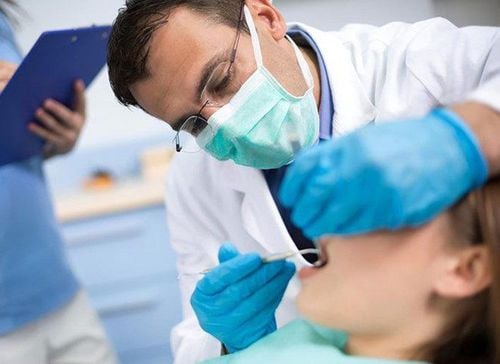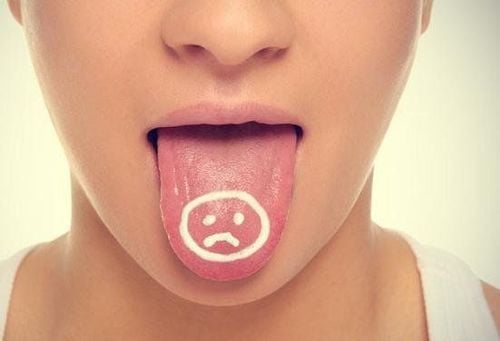This is an automatically translated article.
The article was consulted with Dr. To Kim Sang - Oncology Center, Vinmec Central Park International General Hospital.According to statistics, in the past 30 years, the mortality rate from oral cancer has decreased, thanks to the early diagnosis, timely treatment, and the right regimen. The earlier the signs of oral cancer are detected, the more effective the treatment will be.
1. Causes of oral cancer
Up to the present time, there is still no exact research on what causes people to get oral cancer, however, some factors that are thought to lead to this disease can be:Due to habits Tobacco use: Smoking cigarettes, cigars or using smokeless tobacco or chewing tobacco are all among the most prominent risks of oropharyngeal cancer. Due to the habit of drinking a lot of alcohol: Alcoholics will have a higher risk of oral cancer than the average person, if you want to prevent oral cancer, you need to give up this bad habit. Human Papillomavirus (HPV) infection: Oral cancer linked to HPV is usually found in the back of the throat, the base of the tongue, and in the tonsils. Although cases of oropharyngeal cancer are generally declining, cases of HPV-related cancers are currently increasing. Sun exposure: Too much sun exposure on the lips increases the risk of oral cavity cancer. You can reduce your risk by using a lip balm or cream with sun protection.

Môi tiếp xúc nhiều với ánh nắng mặt trời sẽ làm tăng nguy cơ ung thư miệng
2. What are the signs of oral cancer?
Like some other cancers (tongue cancer, oropharyngeal cancer...), each patient will have different signs of oral cancer, the most common of which are:Ulcers , swelling, or thickening anywhere in or around the mouth or throat Red or white lesions in the mouth or lips Feeling of a lump or object stuck in the throat Persistent bad breath Swelling of the gums Teeth Loose teeth with no obvious dental cause Numbness, pain anywhere in the mouth, including the tongue Pain in one ear but no hearing loss Difficulty moving the jaw or tongue when chewing, swallowing, speaking Pain prolonged throat or hoarseness Swelling in the neck Poor appetite, weight loss, weakness
3. Screening to detect oral cancer early
Oral cancer screening is performed by a dentist or orthodontist to look for signs of oral cancer or precancerous conditions in a person's oral cavity. The goal of oral cancer screening is to identify oral cancer early, giving patients a better chance of cure.Most doctors will perform an oral examination of the patient's oral cavity during each routine dental visit to screen for oral cancer. In addition, when there are suspicious signs or risk factors mentioned above, the doctor may use additional tests to help determine the nature of abnormal cells in the patient's mouth. .

Bác sĩ kiểm tra miệng định kỳ để phát hiện ung thư
Colorant Help screen for oral cancer: Patients will be rinsed with a special blue dye before examination. Abnormal cells in the mouth, if present, will stain with the dye and appear blue. Oral cancer screening lamp: A special type of light makes healthy tissue appear dimmer and makes abnormal tissue appear white. If your doctor detects any suspicious signs of oral cancer or precancerous lesions, the doctor may recommend that you return for a follow-up visit in some cases (after a few weeks) to see if the lesions the anomaly is still present and note whether it has developed or changed over time. If the lesion is fairly obvious, doctors usually have to perform a biopsy by taking a sample of cells/tissue to look at under a microscope in the laboratory to determine if cancer cells are present. If this result is positive, oropharyngeal cancer has been confirmed, the patient needs to plan treatment as soon as possible to improve survival, before invasion to adjacent structures and distant metastases. .
Please dial HOTLINE for more information or register for an appointment HERE. Download MyVinmec app to make appointments faster and to manage your bookings easily.













